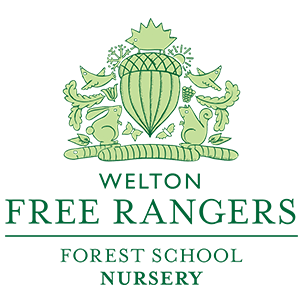The tractor had been mowing in the fields nearby , behind it lay long curving lines of cut grass; stalks and stems piled together forming pillowed ridges across the the hillside. After forming together a team of willing volunteers and finding a wheelbarrow we set off across the farmyard to collect some grass for the garden. What it was going to used for we didn't know, how much we would get we couldn't say...
At first the children enjoyed just coming away to do something a little bit different but then the more times we went out, the more their confidence increased; they started roaming further across the field, lying on the grass, racing each other and jumping over the ridges (with mixed success!). They had the chance to just... run. And run. And run.
At FRHQ we believe that process is far more important than product, this simple trip out into a larger space with a huge amount of loose parts (see my blog Boing!) started ideas and games that would carry on inside the garden when we got back. it gave the children responsibility, allowed them freedom of movement, time to interact far away from an adult, it gave them space to stretch their legs, to laugh and throw, to jump and talk to each other: by the third trip they barely even registered I was there.
Once we got back to the garden, the grass started to pile up, some was put by the mud kitchen for cooking with, some next to a ridge for jumping on but the most popular choice was the grass that was put into the dens, those became the stables. This where the theory of loose parts really shines, the grass took on a purpose (bedding and food), it was transported with ease and was easy to whip around making patterns in the air, when it was put on top of the slatted roofs it could be pulled through, the children were giggling as it dropped down on their heads.
The play continued for the rest afternoon and ended with everyone waiting in a line to jump on to a huge pile we had made, all of the children were engaged with their play and seemed satisfied that they had had a positive impact on its outcome, that they had ownership over its outcome, that in the end they had been given an idea that they could really run with.
